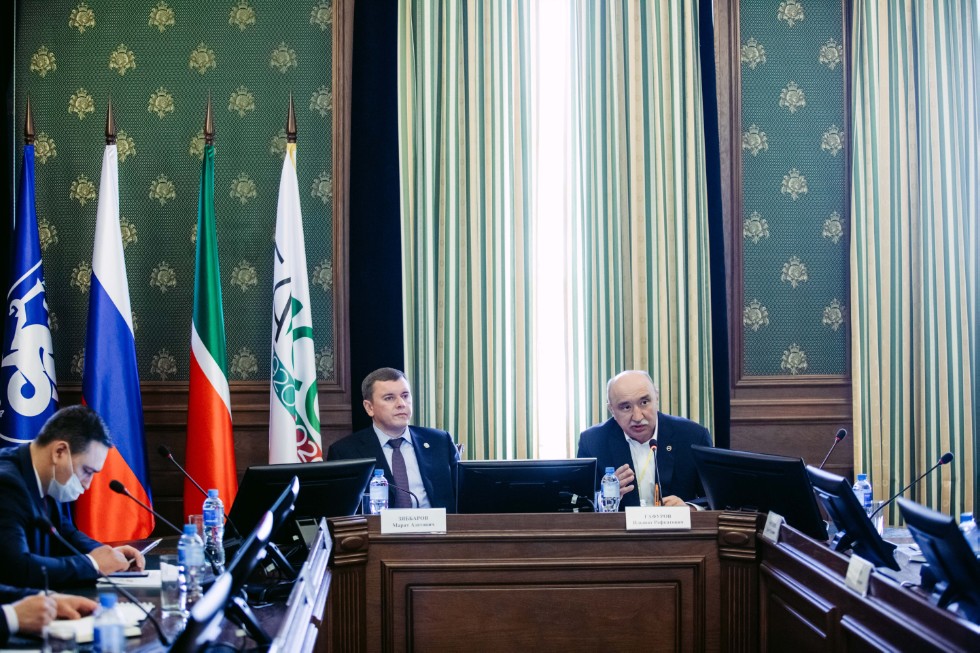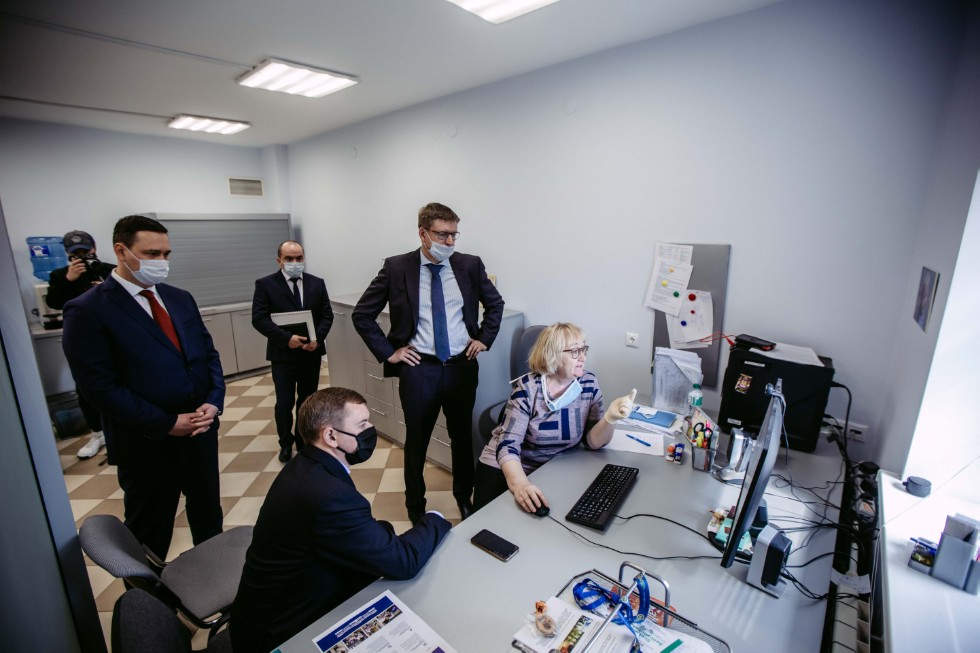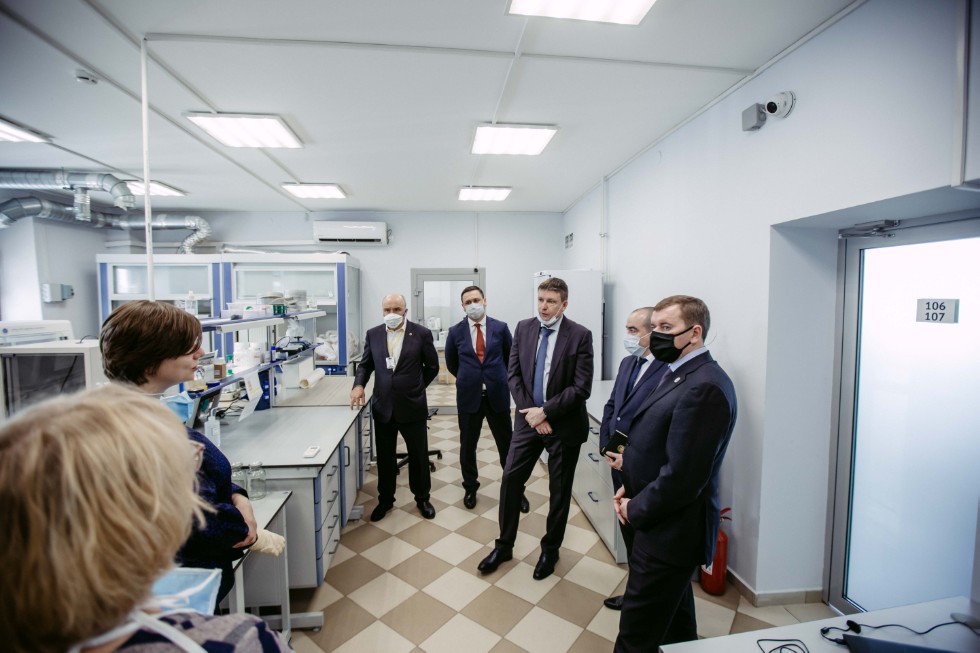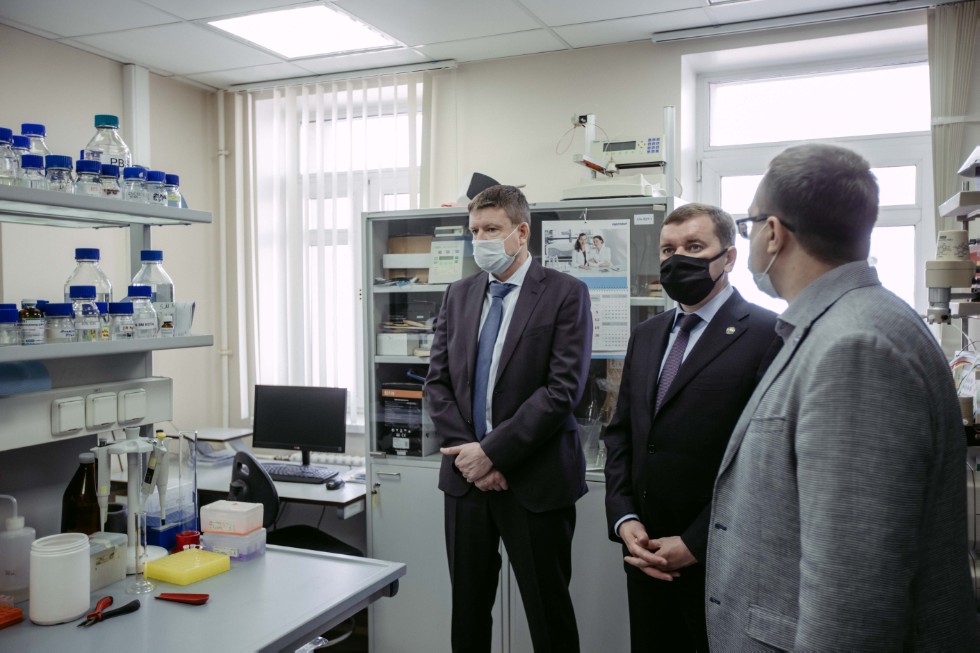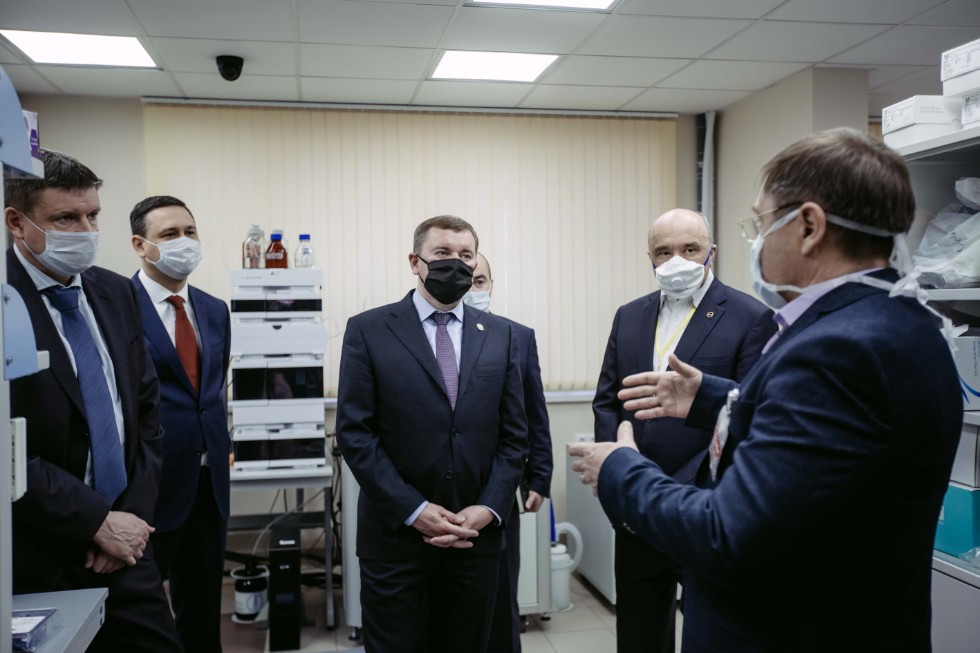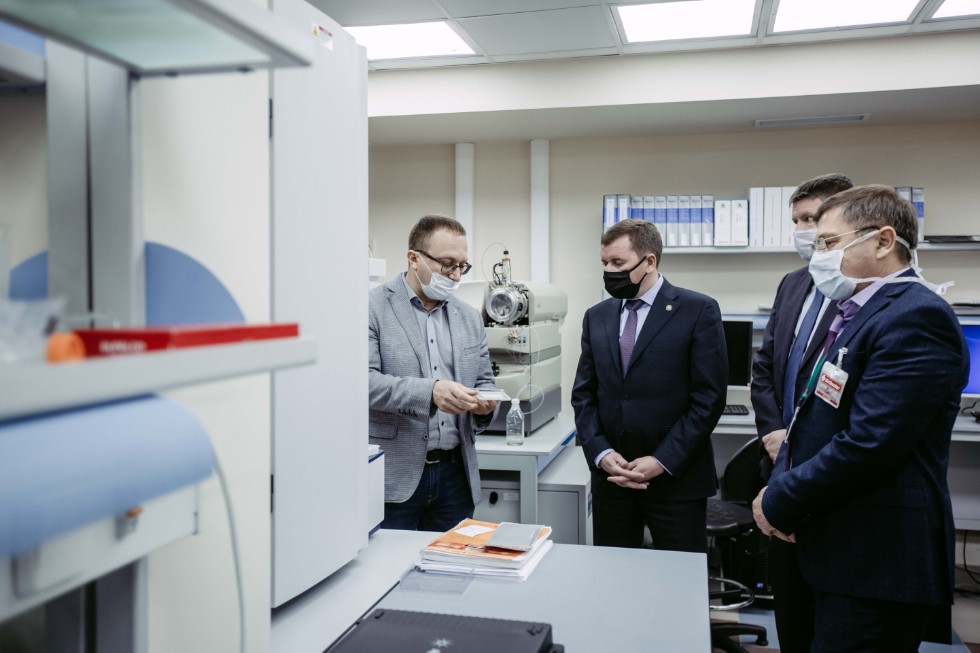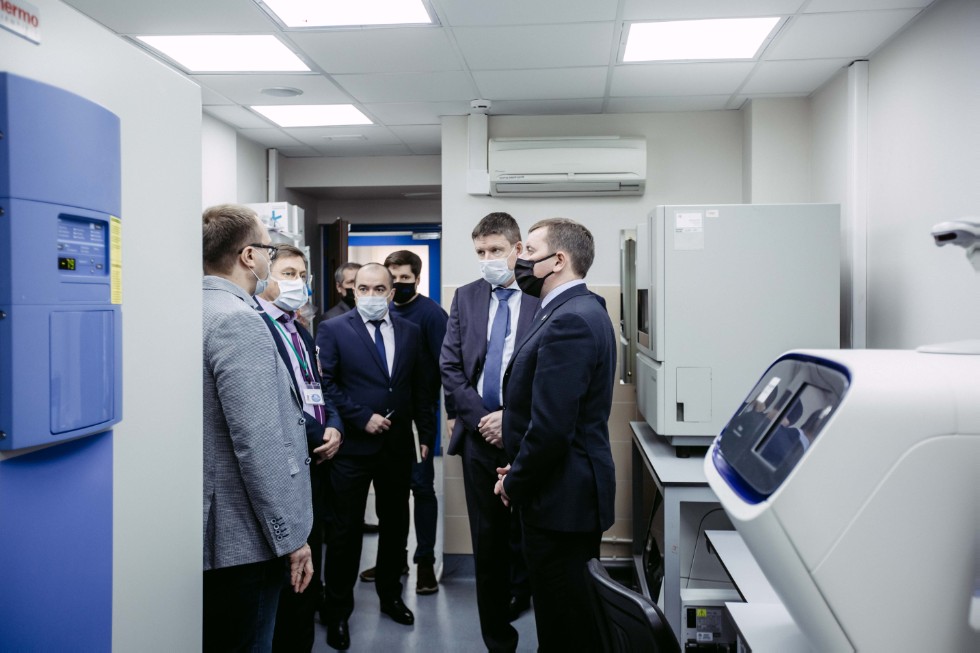Kazan University toured by Minister of Agriculture and Food of Tatarstan Marat Zyabbarov
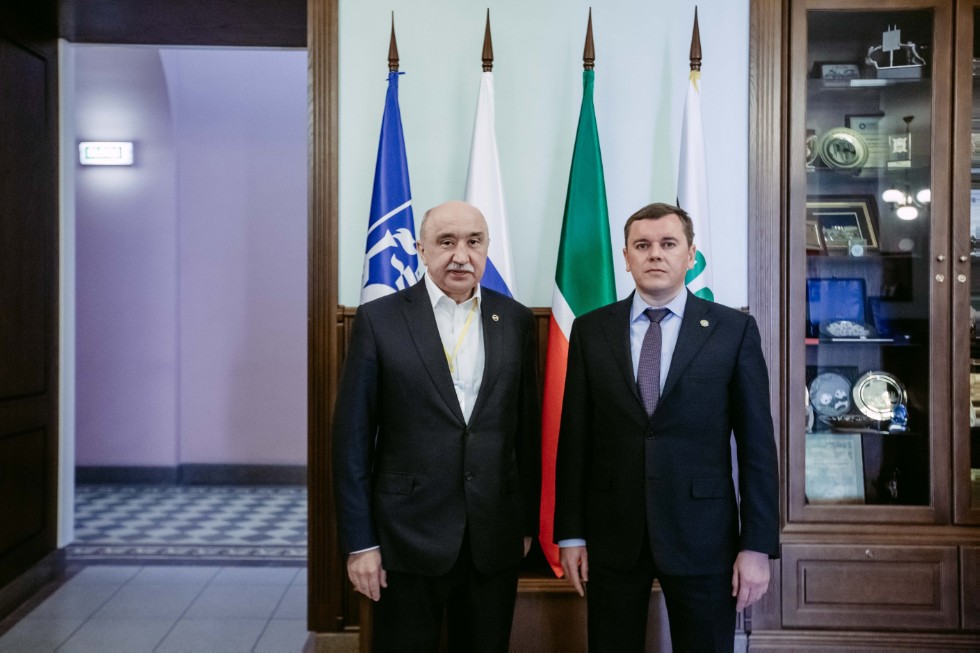
He was accompanied by Rector Ilshat Gafurov.
On 27th April, the Minister got acquainted with KFU employees and their various projects in agriculture and biosecurity.
In particular, one such project tackles antibiotic resistance in agriculture. As Senior Research Associate Tatyana Grigoryeva noted, the University collects biological material from cattle and produce and studies their microbiota.
Director of the Institute of Fundamental Medicine and Biology Andrey Kiyasov added that similar laboratories work at the University Clinic and serve to make precise medication prescriptions.
The Minister then proceeded to listen to Director of the Center for Precision and Regenerative Medicine Albert Rizvanov, who spoke about genetic testing and research.
“We create new molecules, for example, for gene therapy, when it is necessary to introduce a functional gene into the body in case of certain mutations. A healthy copy of the gene is synthesized to correct a specific mutation. For example, you can accelerate bone growth during a fracture or compensate for the lack of blood supply, increasing the growth of blood vessels. A COVID-19 vaccine is also currently under development,” informed Rizvanov.
The delegation later went to the Institute of Environmental Sciences, where Institute Director Svetlana Selivanovskaya presented breakthrough technologies for agricultural production.
“Improving the productivity of strategic crops, improving the quality of agricultural products, reducing the use of antibiotics and antibiotic resistance, implementing import substitution are our basic objectives today,” she said. Dr. Selivanovskaya also noted the need to introduce innovative closed-cycle biotechnologies - utilization of agricultural waste, production of fungicides and biological fertilizers, and seeking secondary energy sources. Thus, environmental improvements can be concomitant with the growth of life standards.
In conclusion, Andrey Kiyasov introduced the project “Biological technology for health and longevity”, created specifically for the provincial science and education center of the Republic of Tatarstan. One of the subtopics of the projects is bioeconomics of agriculture.
“Today, we lack interaction with Kazan Federal University in the agricultural sector. There are many problematic issues that we can work on together, such as waste treatment. There is an opportunity to demonstrate our experience in solving such problems. Now the main task is to find common ground, determine the main directions for further interaction,” summarized Marat Zyabbarov.
Rector Gafurov added that it would be beneficial to develop joint educational programs in new technologies with educational institutions of the Ministry of Agriculture and Food. “These educational institutions and their research centers can be of great help, as they are all practice-oriented and know the needs of the agricultural industry. Creating educational programs will facilitate experience exchange and interaction between teachers and students,” said he.
Source text: Leisan Zakirova
Translation: Yury Nurmeev









